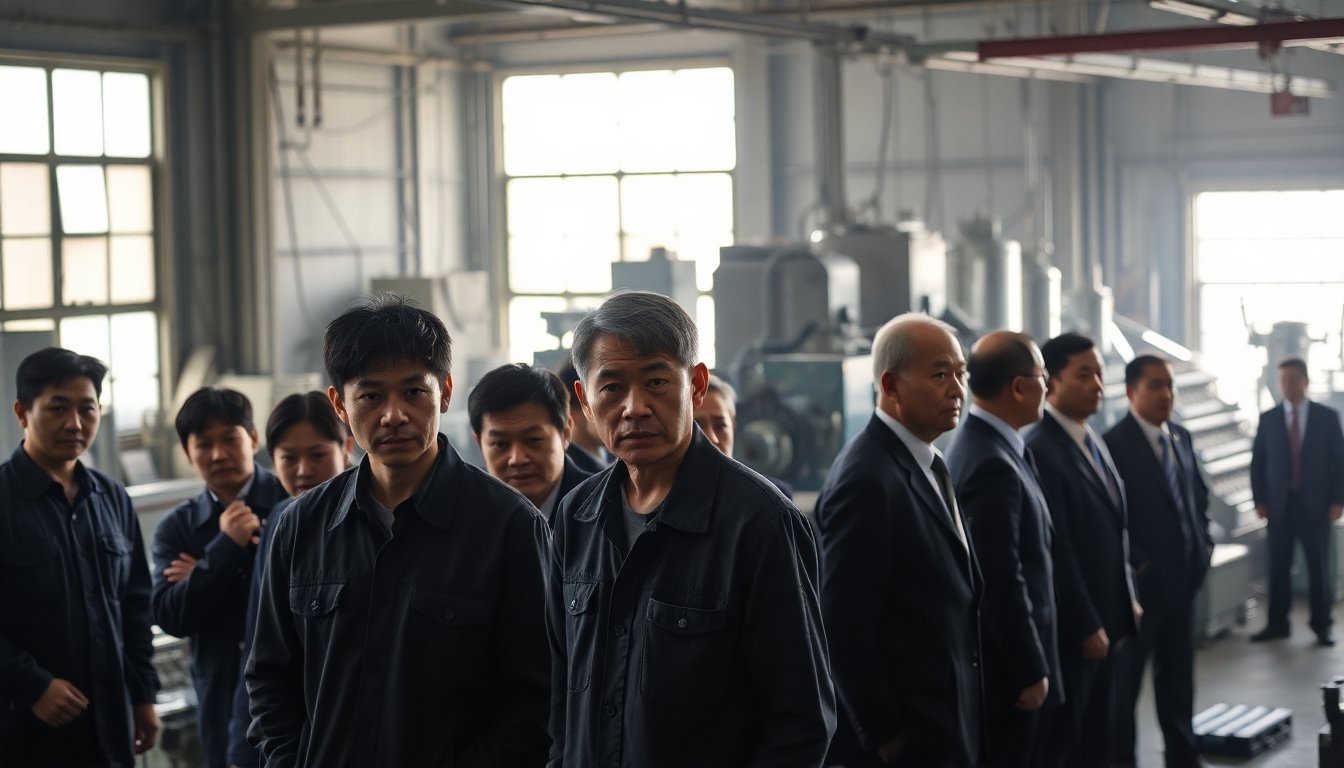Table of Contents
The recent immigration raid at a battery factory in Georgia, which resulted in the detention of 475 workers—including over 300 South Koreans—has ignited a diplomatic crisis between South Korea and the United States. This incident, occurring on September 4, has attracted international scrutiny and raised critical concerns regarding the treatment of foreign workers in the U.S. As South Korean officials urgently negotiate for the release of their citizens, the ramifications for bilateral relations and future labor policies are becoming increasingly significant.
Understanding the Raid’s Context and Implications
The raid, carried out by the U.S. Homeland Security agency, is described as the largest of its kind. It is part of a broader strategy to enforce immigration laws as the Trump administration intensifies its deportation efforts. Video evidence released by U.S. authorities, depicting detainees in shackles, has incited outrage in South Korea, a nation that values its close alliance with the U.S. The South Korean government now faces pressure to address the fallout from this incident, perceived by many as a national embarrassment.
In light of the raid, South Korea’s Foreign Ministry is in discussions with U.S. officials to expedite the return of the detained workers. A charter flight, which departed from Incheon International Airport, was intended to bring home those released from an immigration detention center in Folkston, Georgia. However, complications have emerged, delaying the plane’s departure from the U.S., reflecting the complexities of diplomatic negotiations in sensitive matters.
Analyzing the Broader Impact on U.S.-South Korea Relations
This incident arises at a time when South Korea has sought to enhance its industrial footprint in the U.S., with numerous companies investing significantly in American manufacturing. The Georgia battery plant represents a joint venture between Hyundai and LG Energy Solution, underscoring the significance of South Korean investment in the U.S. economy. However, recent events have strained this relationship, as many South Koreans view the raid as a betrayal, especially following recent diplomatic engagements between the leaders of both nations.
Experts suggest that while South Korea may avoid drastic retaliatory measures against the U.S., the raid could escalate tensions. South Korean officials have been advocating for a more accommodating visa system to facilitate the presence of skilled workers in the U.S., a demand that has not seen considerable progress from Washington. The reliance on short-term visitor visas and the Electronic System for Travel Authorization (ESTA) highlights the precarious nature of labor provisions for South Korean companies operating in the United States.
Future Considerations and the Need for Policy Changes
In response to the raid, South Korean companies, particularly LG Energy Solution, have directed their employees in the U.S. to refrain from reporting to work until further notice. This indicates a potential halt in operations that could adversely affect productivity and project timelines. This situation not only impacts the companies involved but also raises questions regarding the future of U.S.-South Korea labor relations.
As discussions continue between South Korean officials and their U.S. counterparts, there is an urgent need for legislative changes that would establish a separate visa quota for skilled South Korean professionals. Such changes could reduce the risks of similar incidents in the future and foster a more positive framework for bilateral economic cooperation. The complexities of the current immigration landscape in the U.S. highlight the critical need for a more strategic approach to labor relations with South Korea, which remains a vital ally in the Asia-Pacific region.
Ultimately, the events surrounding the Georgia raid serve as a stark reminder of the delicate balance in U.S.-South Korea relations. As both nations navigate this diplomatic challenge, the focus must shift toward fostering a more supportive environment for foreign workers and ensuring that bilateral cooperation continues to thrive amid potential tensions.


